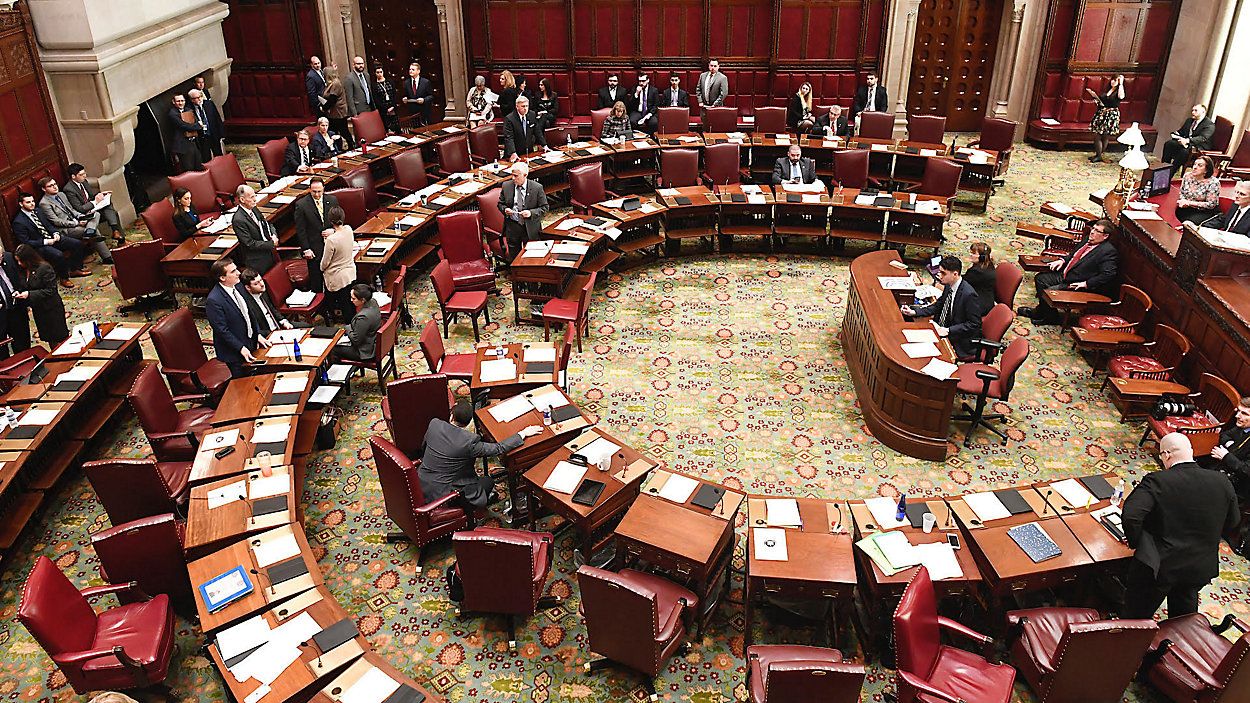Members of the commission tasked with drawing new legislative boundaries for federal House seats and the state Senate and Assembly on Wednesday signaled they could not agree on the same set of proposed maps for dividing up New York's voters.
So the commission will release two sets of maps for debate as the process continues to unfold in the coming weeks. The development could eventually lead to the state Legislature — firmly controlled by Democrats — once again playing a crucial role in drawing the boundaries.
New York's redistricting process is supposed to be in the hands of a commission to remove some of the influence of members of the state Legislature, who have traditionally drawn boundaries, in effect choosing their own voters, and strengthening the power of incumbency in the process.
The creation of the commission through a state constitutional amendment was supposed to change that process, throwing it to the commission. Without an agreement in place by Jan. 15 when the final set of maps are due, the process could eventually wind back up in the court of the state Legislature, where Democrats have supermajorities in both chambers.
Still, members of the commission hoped on Wednesday the next round of 14 public hearings to be held across the state in the coming weeks will provide an opportunity to reach an agreement.
"The people of New York are counting on us in ways that are not contemplating before," said Elaine Frazier, a commission member. "I think we're up to the challenge. I look forward to working with you."
New York is set to lose one House seat as its population did not grow as fast as the rest of the country. If Democrats are able to submit their own version of the maps, it could ultimately help the party keep control of the narrowly divided House of Representatives in the upcoming midterm elections while solidifying their power in Albany.
New York voters this November will also consider changes to the state constitution that could further empower the supermajorities in the Legislature.
Republicans have raised alarm in recent weeks over the power Democrats in New York could ultimately wield over the process.
"I believe a fair reading of the constitution is a set of a plans, not a multiple set of plans," said former Assemblyman Charles Nesbitt, a Republican member of the commission.
Nesbitt said there are "some obvious problems, especially upstate, where communities of interest were entirely ignored or split."
"We can't have this turning into a gerrymandering exercise of another time," he said.


